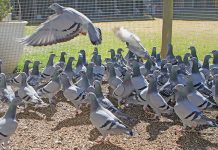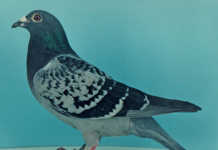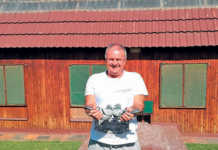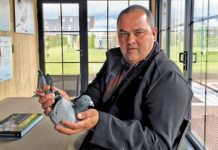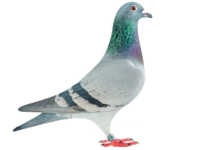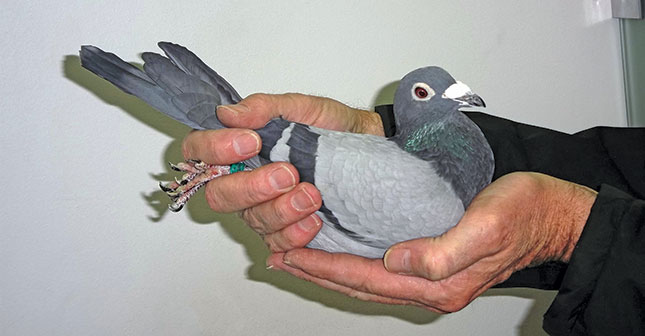
Photo: FW Archive
Sick racing pigeons can’t breed champion racers. Neither will they do well in races. Sick pigeons are listless, refuse to eat and often end up standing in a corner on the loft floor.
By contrast, pigeons in good health are active and have a good appetite.
“Any neglect at any time can have a long-term ripple effect for the remainder of the season, which may cost you dearly,” Dr Botha explains.
But this doesn’t mean you should run to the medicine cupboard every time a pigeon sneezes, he adds. Instead, it means eliminating the possible cause(s) responsible for the sneezing.
A good health management system also involves the timely vaccination of your young pigeons against pigeon pox and paramyxovirus.
The effect of the latter on the kidneys is irreversible – any young pigeon contracting this disease will be disadvantaged for the rest of its life.
For paramyxovirus, Dr Botha advises that young racing pigeons be vaccinated at 21 days of age with a vaccination registered for use in pigeons. A follow-up vaccination should be done two weeks later using the ‘chicken’ version.
A further vaccination should be done just before the racing pigeon season starts in April/May.
Dr Botha also says he’s noticed an increase in muscle and wing disease and Clostridium at his practice in Tshwane. These diseases require a specific and often prolonged treatment programme, with a higher dosage of amoxicillin securing better results.
Correct dosage
Dr Rob Conradie has extensive experience in pigeon health management and has made his Bryanston practice, north of Johannesburg, available to the pigeon racing fraternity for regular health examinations for years.
He warns that pigeon medication should be used at the prescribed dosage. Pigeons not receiving the correct dosage of the active ingredient of the medication via the bloodstream won’t benefit from the treatment, he explains – while dosages that are too low may cause a resistance to the bacteria.
He says he has seen a high incidence of the Candida fungus in pigeons over the past three years – especially between July and August.
As with many pigeon diseases, the higher incidence during July seems stress-related due to the demands of the racing season. In addition, the incorrect use of medication adds to the increase. Treatment by a vet is imperative, he says.
Sharing knowledge
Avian surgeon Dr Wim Peters of Somerset West in the Western Cape is himself an experienced and successful pigeon fancier, and has written several highly informative books on pigeon health.
In sharing his knowledge, he says, he attempts to bridge the gap between practical pigeon keeping and the requirements of science. Due to the increasing amount of pigeon medication on the market, he says the correct use of antibiotics is critical.
Finally, the Pigeon Institute of SA (Pisa), based in Edenvale east of Johannesburg, has developed a full range of pigeon health products.
Contact Dr Botha (technical advisor at pigeon health company Aviomed) through www.aviomed.co.za.
Contact Dr Conradie on 011 706 2184.
Contact Dr Wim Peters at [email protected].
Contact Pisa director Joe Strydom at 082 771 1181, or [email protected].


